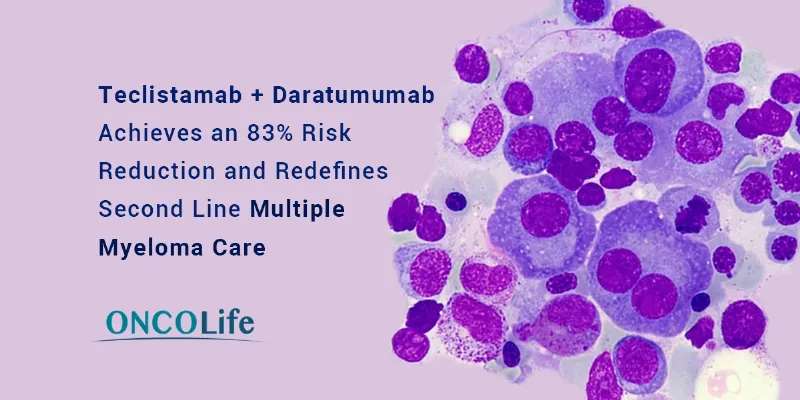Landmark Study Shows Comprehensive Heart Benefits of Wegovy Beyond Weight Loss


Clinical Trials |
12 November 2023
Recent data from Novo Nordisk's extensive SELECT trial has uncovered remarkable cardiovascular benefits of Wegovy (semaglutide), a popular weight-loss medication, which extend beyond its well-known weight reduction capabilities. Presented at the American Heart Association's meeting, the trial showed that semaglutide reduced major adverse cardiovascular events (MACE) by 20%.
The SELECT Trial: A Landmark Study
The SELECT trial, conducted by Novo Nordisk, has revealed that Wegovy (semaglutide), primarily known for weight loss, also offers significant cardiovascular benefits. Presented at the American Heart Association's meeting and published in The New England Journal of Medicine, the trial showed that Wegovy reduced major adverse cardiovascular events (MACE) by 20%. Specifically, it decreased the risk of non-fatal heart attacks by 28%, non-fatal strokes by 7%, and heart-related deaths by 15%.
Remarkably, these heart benefits appeared almost immediately after treatment initiation, suggesting mechanisms beyond just weight loss. The study involved over 17,000 overweight or obese patients with preexisting heart disease but without diabetes. While the drug led to an average weight loss of nearly 10%, the trial primarily focused on cardiovascular outcomes rather than weight reduction.
Wegovy also improved other health markers like blood pressure, cholesterol, and inflammation, akin to effects seen with cholesterol-lowering statins.
More Than Just Weight Loss
Initial findings indicated that Wegovy led to an average weight loss of 9.4% of total body weight. However, the latest readout from the SELECT trial suggests that Wegovy's heart benefits stem from more than just weight loss. Patients showed early signs of cardiovascular risk reduction, well before significant weight loss occurred, indicating multiple pathways at play.

Key Findings and Secondary Endpoints
Wegovy demonstrated a 28% reduction in the risk of non-fatal myocardial infarction and significant decreases in cardiovascular death and non-fatal stroke risks, although these were not statistically significant. The drug also aced secondary endpoints, such as composite heart failure events and a lowering of blood pressure, cholesterol, and blood sugar levels.
“For the first time, we have evidence that semaglutide 2.4 mg improves cardiovascular outcomes in at-risk patients with BMI of 27 and above with established CVD, without diabetes,” said Dr Michael Lincoff, lead study author, vice chair for research in the Cleveland Clinic DCM. “The three-point MACE risk reduction observed in SELECT suggests the potential for a new option in obesity treatment, addressing some of the leading causes of preventable death worldwide.”
The Drug's Mechanism
While the exact mechanisms remain speculative, Wegovy appears to influence several associated risk factors, including inflammation, blood pressure, and blood sugar control. Patients on Wegovy also experienced decreases in C-reactive proteins, akin to those reported with cholesterol-lowering statins.
Regulatory and Clinical Implications
Novo Nordisk has submitted a filing to the FDA for updating Wegovy’s label with data from SELECT, which has been granted priority review. The data is poised to change clinical perspectives on obesity treatment and cardiovascular risk management.
The SELECT trial marks a significant advance in understanding the multifaceted benefits of semaglutide. Its impact on weight loss and cardiovascular health positions Wegovy as a potential game-changer in treating patients with obesity and preexisting heart conditions. As the medical community awaits regulatory decisions, the promise of this drug in improving patient outcomes remains a beacon of hope.
Safety and Tolerance
The study confirmed Wegovy's safety and tolerability, aligning with previous semaglutide trials. However, gastrointestinal disorders led to discontinuation in some participants.
About Wegovy (semaglutide)
Wegovy is a GLP-1 receptor agonist indicated as an adjunct to a reduced-calorie diet and increased physical activity for chronic weight management in adults with a BMI of 30 kg/m² or greater (obesity), adults with a BMI of 27 kg/m² or greater (overweight) in the presence of at least one weight-related comorbid condition, and pediatric patients aged 12 years and older with an initial BMI at the 95th percentile or greater for age and gender (obesity).
Abstract of the research
Semaglutide and Cardiovascular Outcomes in Obesity without Diabetes
Abstract: Semaglutide, a glucagon-like peptide-1 receptor agonist, has been shown to reduce the risk of adverse cardiovascular events in patients with diabetes. Whether semaglutide can reduce cardiovascular risk associated with overweight and obesity in the absence of diabetes is unknown. METHODS: In a multicenter, double-blind, randomized, placebo-controlled, event-driven superiority trial, we enrolled patients 45 years of age or older who had preexisting cardiovascular disease and a body-mass index (the weight in kilograms divided by the square of the height in meters) of 27 or greater but no history of diabetes. Patients were randomly assigned in a 1:1 ratio to receive once-weekly subcutaneous semaglutide at a dose of 2.4 mg or placebo. The primary cardiovascular end point was a composite of death from cardiovascular causes, nonfatal myocardial infarction, or nonfatal stroke in a time-to-first-event analysis. Safety was also assessed. RESULTS: A total of 17,604 patients were enrolled; 8803 were assigned to receive semaglutide and 8801 to receive placebo. The mean (±SD) duration of exposure to semaglutide or placebo was 34.2±13.7 months, and the mean duration of follow-up was 39.8±9.4 months. A primary cardiovascular end-point event occurred in 569 of the 8803 patients (6.5%) in the semaglutide group and in 701 of the 8801 patients (8.0%) in the placebo group (hazard ratio, 0.80; 95% confidence interval, 0.72 to 0.90; P<0.001). Adverse events leading to permanent discontinuation of the trial product occurred in 1461 patients (16.6%) in the semaglutide group and 718 patients (8.2%) in the placebo group (P<0.001). CONCLUSIONS: In patients with preexisting cardiovascular disease and overweight or obesity but without diabetes, weekly subcutaneous semaglutide at a dose of 2.4 mg was superior to placebo in reducing the incidence of death from cardiovascular causes, nonfatal myocardial infarction, or nonfatal stroke at a mean follow-up of 39.8 months. (Funded by Novo Nordisk; SELECT ClinicalTrials.gov number, NCT03574597. opens in new tab.)











Comments
No Comments Yet!